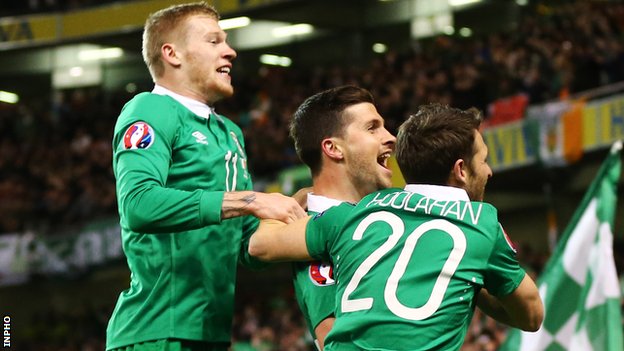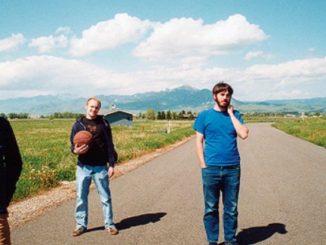
Upon the release of the Irish team sheet before last week’s Euro 2016 qualifier against Poland a general feeling of optimism began to grow among pundits and fans alike as it was clear that Martin O’Neill was looking to take all three points from the tie.
It was a feeling that hasn’t been encountered in Irish football in a number of years. Giovanni Trapattoni would never have set out a team that included a left winger at full back as well as a playmaker playing off the striker, especially not against one of Europe’s best teams – a team that beat world champions Germany 2-0 only six months ago.
It was refreshing to see a change in the philosophy employed by the Irish national team but it was a change that ultimately did not work. Robbie Brady struggled in the unfamiliar position of left-back, faltering to allow Slawomir Peszko in for the opening goal.
In the second half it was a different story and certainly Ireland did play well. However, it was not a new philosophy or a refreshing change in tactics that earned Ireland a draw. No, it was those faithful old Irish footballing allies – persistence and spirit.
The history of our national team is littered with ‘never give in’ 1-1 draws that give everyone a lift and keep our hopes up but, ultimately, only paint over the cracks.
Indeed Shane Long’s goal was the epitome of a late Irish equaliser – a beautiful scuff off the underside of his boot that spun over Lukasz Fabianski and into the net.
It wasn’t quite up to the levels of scrappiness achieved by Niall Quinn’s toe poke against The Netherlands at Italia 90’ but it will be remembered in a similar bracket.
But a goal is a goal, and they should be taken any way they come. On the second half performance Ireland undoubtedly deserved a draw.
Few expected a victory over Poland and therefore it is a good point for Ireland. Now the focus must turn to Scotland at home in two months’ time.
Without a doubt June’s encounter is the make-or-break match of this qualifying campaign. A similar team to those who took the field last week would certainly be welcome as Scotland will not be up to the standard of Poland.
What is needed is for the midfield combination of Glenn Whelan and James McCarthy to up their game. Both players struggled last week, McCarthy is particular continuing to live up to his reputation of a £14 million Premier League midfielder.
The pair were chasing the ball for much of the game meaning that Wes Hoolahan was left to feed on scraps for the duration. If we are to beat Scotland and keep our hopes of qualification alive McCarthy and Whelan need to see more of the ball to be able to supply Hoolahan, therefore allowing the Norwich man to create the openings.
Under Trapattoni the complaint was that the ball bypassed midfield too often as it was lumped long to Jonathan Walters or perhaps Kevin Doyle. That is not the case anymore as O’Neill has employed more of a passing style.
Despite this however Whelan still looks afraid to play a pass forward while McCarthy seems to go missing for large parts of the game.
Shane Long probably does deserve his chance up front but it is very difficult for O’Neill to drop Robbie Keane. Yes Keane isn’t what he used to be but his experience is vital and his goalscoring record is nothing short of sensational when you consider that he has played for a mediocre international team all through his career.
If Hoolahan can be supplied with more of the ball he will create the chances for Keane to finish. If you were left with a choice of whether to have a chance fall to Robbie Keane or Shane Long during a vital game it’s really a no-brainer who you would choose to finish.
Ireland do have the quality to beat Scotland, but only if it used correctly. If Martin O’Neill uses that quality in a similar way to how he did last week then they will certainly have the best possible chance.
Ruaidhrí Croke
Image Credit: Sportsfile




Leave a Reply